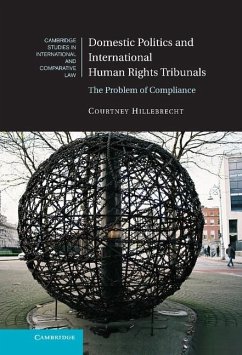International politics has become increasingly legalized over the past fifty years, restructuring the way states interact with each other, international institutions, and their own constituents. The international legalization of human rights now makes it possible for individuals to take human rights claims against their governments at international courts such as the European and Inter-American Courts of Human Rights. This book brings together theories from international law, human rights and international relations to explain the increasingly important phenomenon of states' compliance with human rights tribunals' rulings. It argues that this is an inherently domestic affair. It posits three overarching questions: why do states comply with human rights tribunals' rulings? How does the compliance process unfold and what are the domestic political considerations around compliance? What effect does compliance have on the protection of human rights? The book answers these through a combination of quantitative analyses and in-depth case studies from Argentina, Brazil, Colombia, Italy, Portugal, Russia and the United Kingdom.
Dieser Download kann aus rechtlichen Gründen nur mit Rechnungsadresse in A, B, BG, CY, CZ, D, DK, EW, E, FIN, F, GR, HR, H, IRL, I, LT, L, LR, M, NL, PL, P, R, S, SLO, SK ausgeliefert werden.









